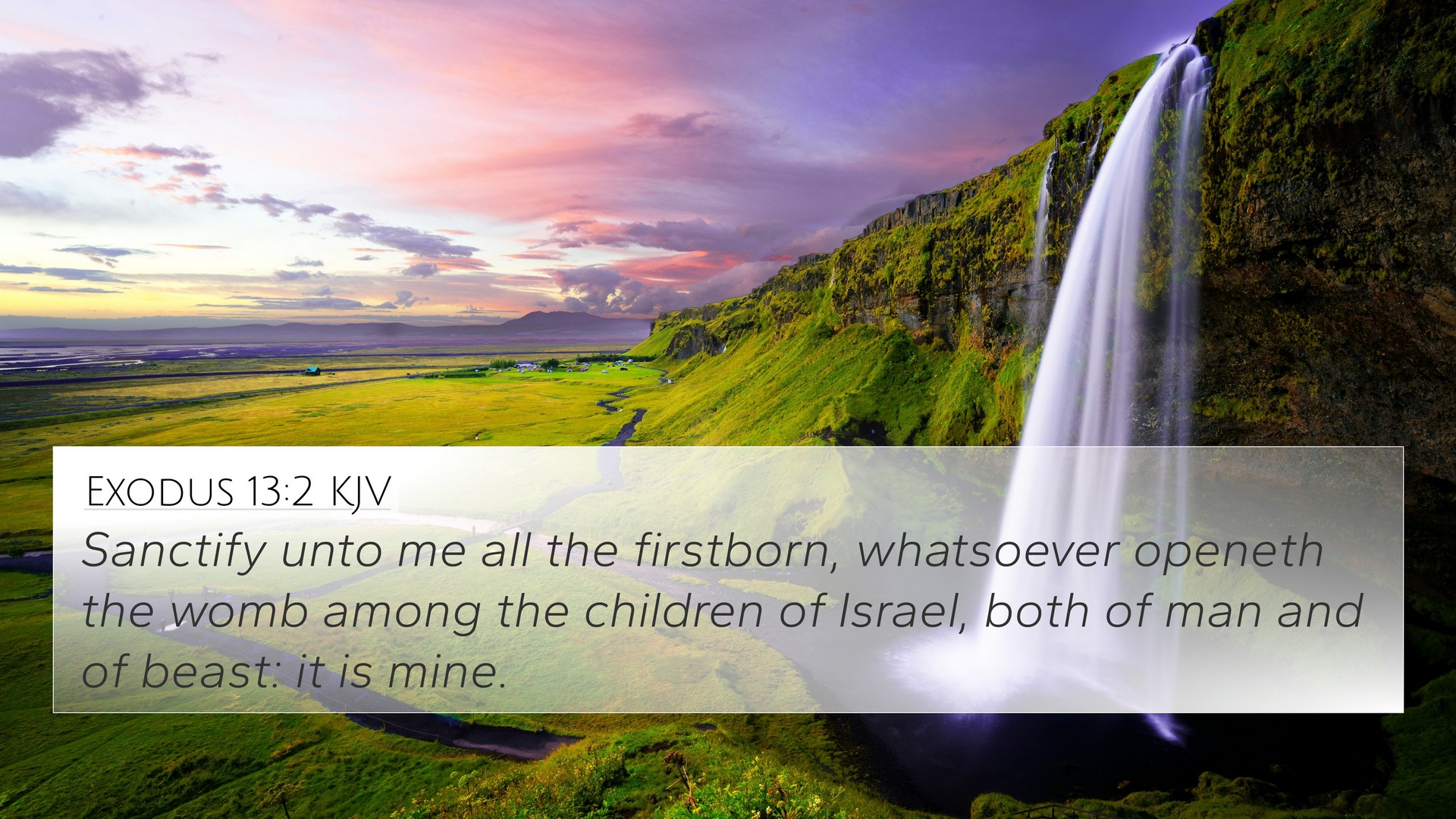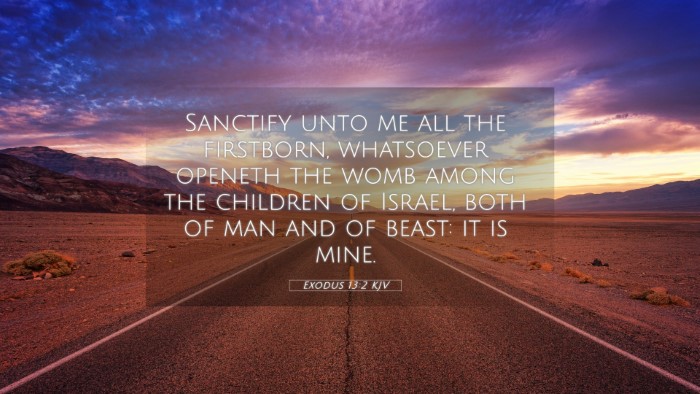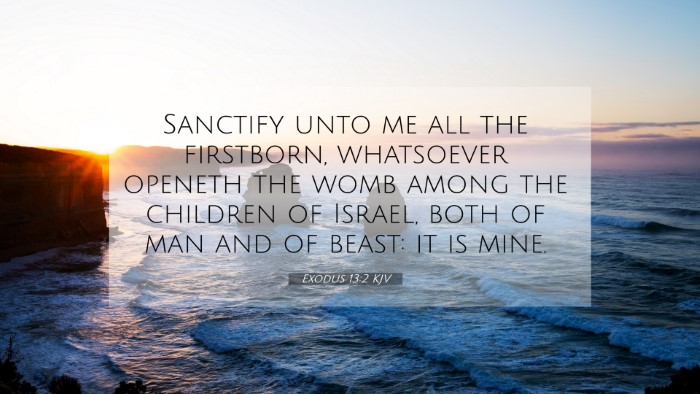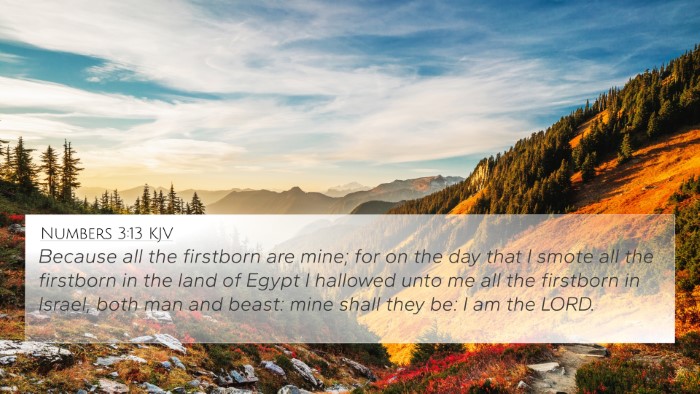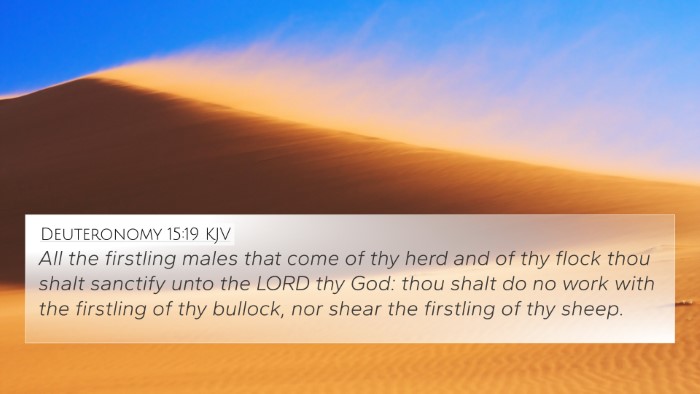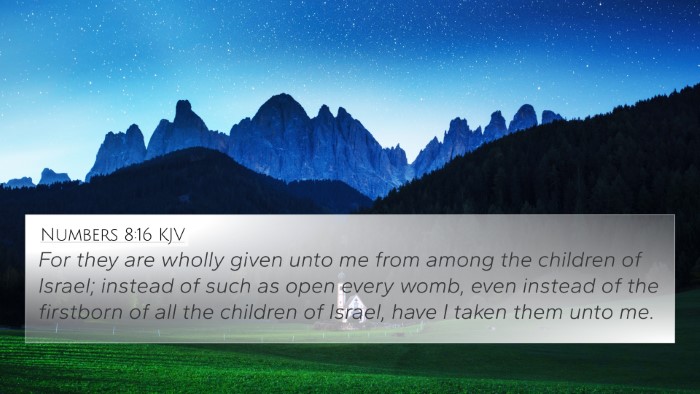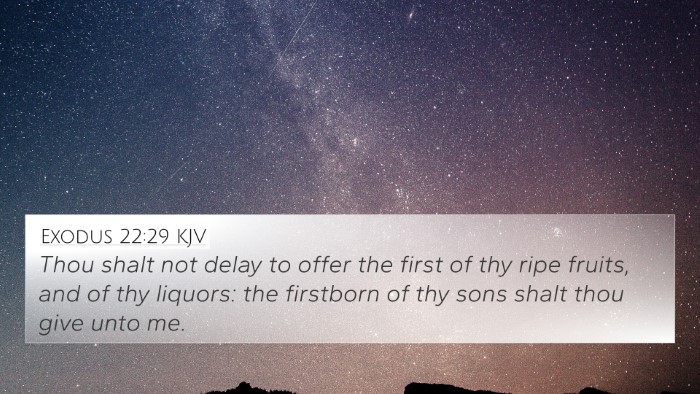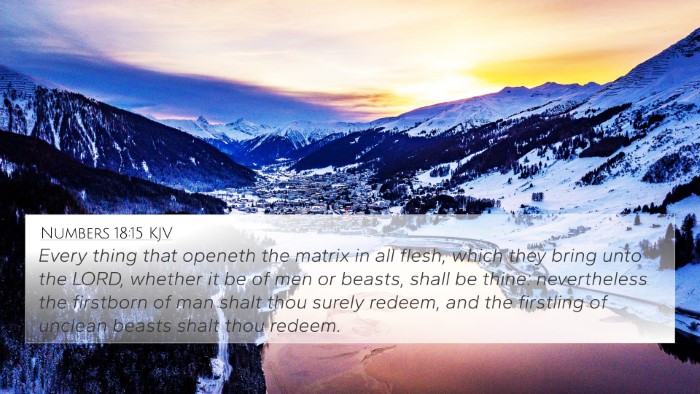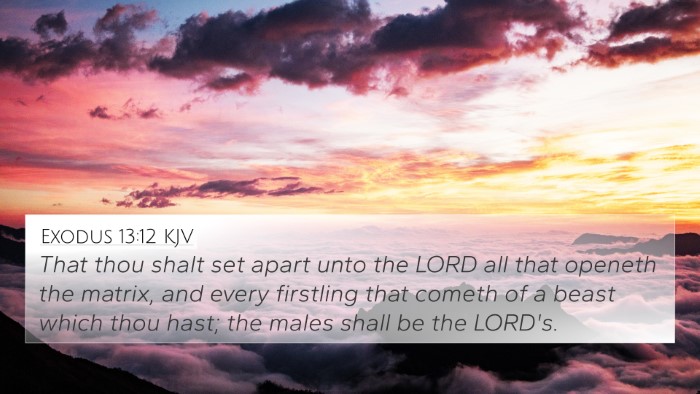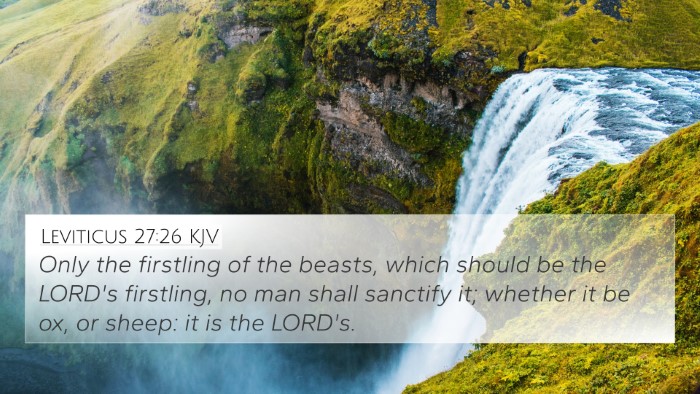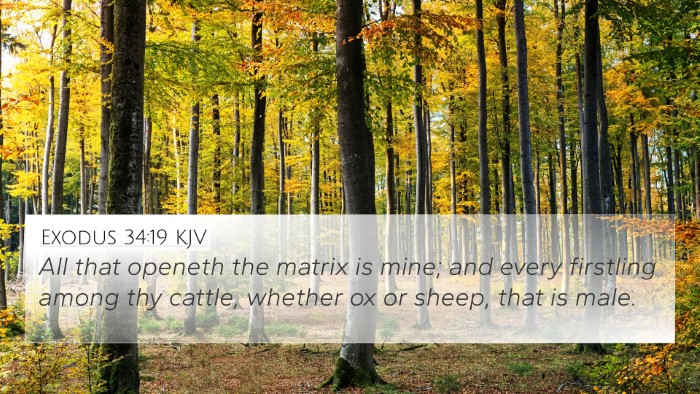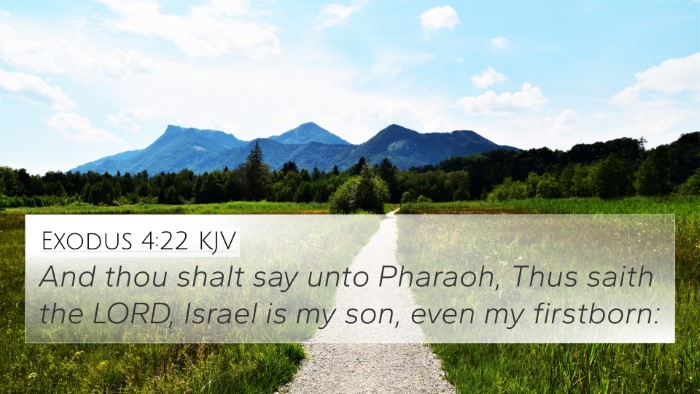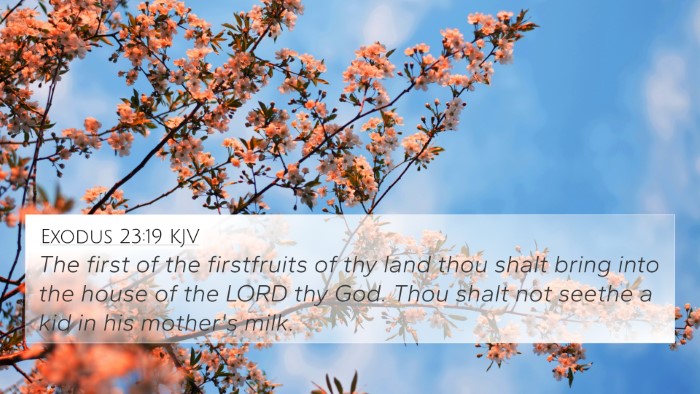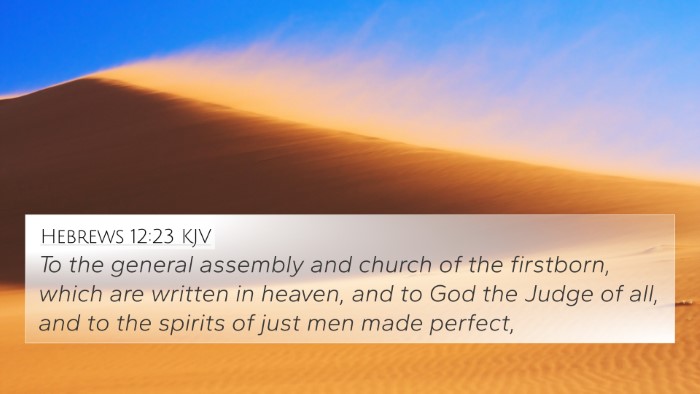Understanding Exodus 13:2
Exodus 13:2 states, “Sanctify unto me all the firstborn, whatsoever openeth the womb among the children of Israel, both of man and of beast: it is mine.” This verse holds significant meaning in the context of Israel's deliverance from Egypt and the instructions given by God thereafter.
Analysis of Exodus 13:2
In this crucial instruction, we observe the sanctification of the firstborn, emphasizing their importance and the notion of belonging to God. Through this act, the Israelites are reminded of the Lord’s mighty hand in their deliverance from slavery.
Insights from Public Domain Commentaries
-
Matthew Henry:
Henry highlights that God's command regarding the firstborn serves as a reminder of the Passover and the sparing of the Israelites' firstborns. This act of sanctification is not merely a duty but is imbued with the significance of divine grace and redemption.
-
Albert Barnes:
Barnes provides an analysis of the term 'sanctify', stressing that it connotes setting apart for God. He notes that the firstborns of both men and animals signify the acknowledgment of God’s authority in creation and His role as the ultimate deliverer.
-
Adam Clarke:
Clarke emphasizes the historical context, suggesting that this commandment arose as a reflection on the liberation from Egypt. He posits that this act was to instill a sense of holiness and fear of God within the Israelites, promoting obedience and reverence for God’s laws.
Thematic Connections to Other Scriptures
This verse connects thematically with several other key scriptures in the Bible, emphasizing the overarching narrative of God’s covenant and the sanctification of His people:
- Numbers 3:13: “Because all the firstborn are mine...” - Reinforces the idea of God claiming the firstborns as His own.
- Luke 2:23: “As it is written in the law of the Lord, Every male that openeth the womb shall be called holy to the Lord.” - Shows the continuation of this theme into the New Testament.
- Hebrews 11:28: “Through faith he kept the Passover, and the sprinkling of blood, lest he that destroyed the firstborn should touch them.” - Connects the act of sanctification to faith and deliverance.
- Exodus 12:12-13: The Passover ensures that the firstborns of Israel are spared, highlighting God’s mercy and judgment.
- 1 Peter 1:2: “Elect according to the foreknowledge of God the Father, through sanctification of the Spirit, unto obedience...” - Relates the idea of sanctification to the New Covenant.
- Romans 12:1: “I beseech you therefore, brethren, by the mercies of God, that ye present your bodies a living sacrifice, holy, acceptable unto God...” - Expands the concept of holiness and sacrifice in the life of believers.
- Exodus 34:19: “All that openeth the matrix is mine...” - Reinforces the Hebraic law regarding the first born provided in Exodus 13:2.
Practical Application
Understanding Exodus 13:2 through these commentaries and connections encourages one to reflect on their own life and the concept of being 'set apart' for God’s purpose. It calls for a commitment to holiness in the pursuit of fulfilling God’s plan.
How to Utilize Bible Cross-References
Using a structured approach in cross-referencing can enhance your study of the Bible:
- Utilize a Bible concordance to find related verses and themes.
- Employ a Bible cross-reference guide to track connections across both Testaments.
- Consider using tools that facilitate cross-referencing Bible study methods for deeper understanding.
- Engage in comparative studies of verses that address similar themes.
- Implement Bible chain references, linking verses from prophets to gospel teachings.
Conclusion
In summary, Exodus 13:2 serves as a profound reminder of God's deliverance and the importance of setting apart that which belongs to Him. The insights gathered from various commentaries enrich our understanding and encourage us to explore further the interconnections between the scriptures.
